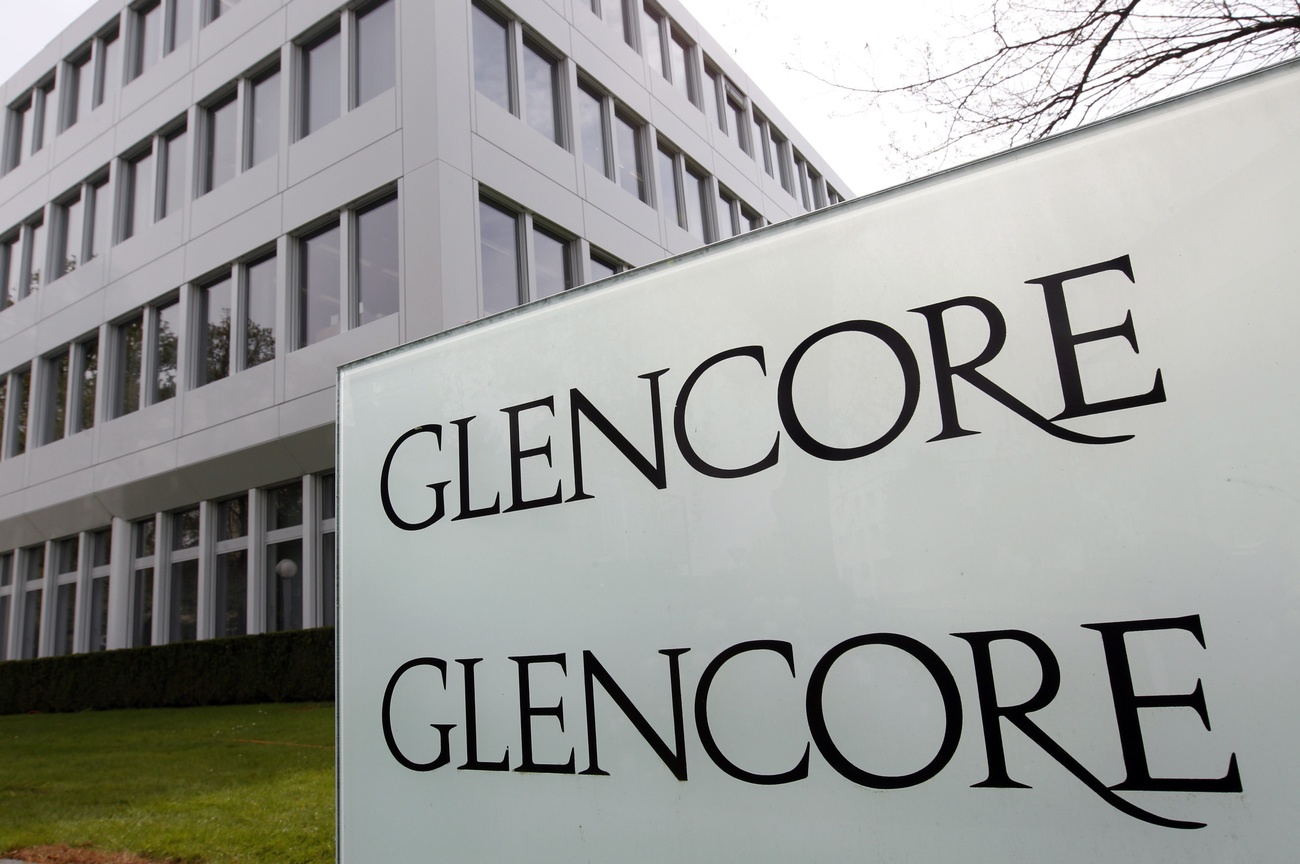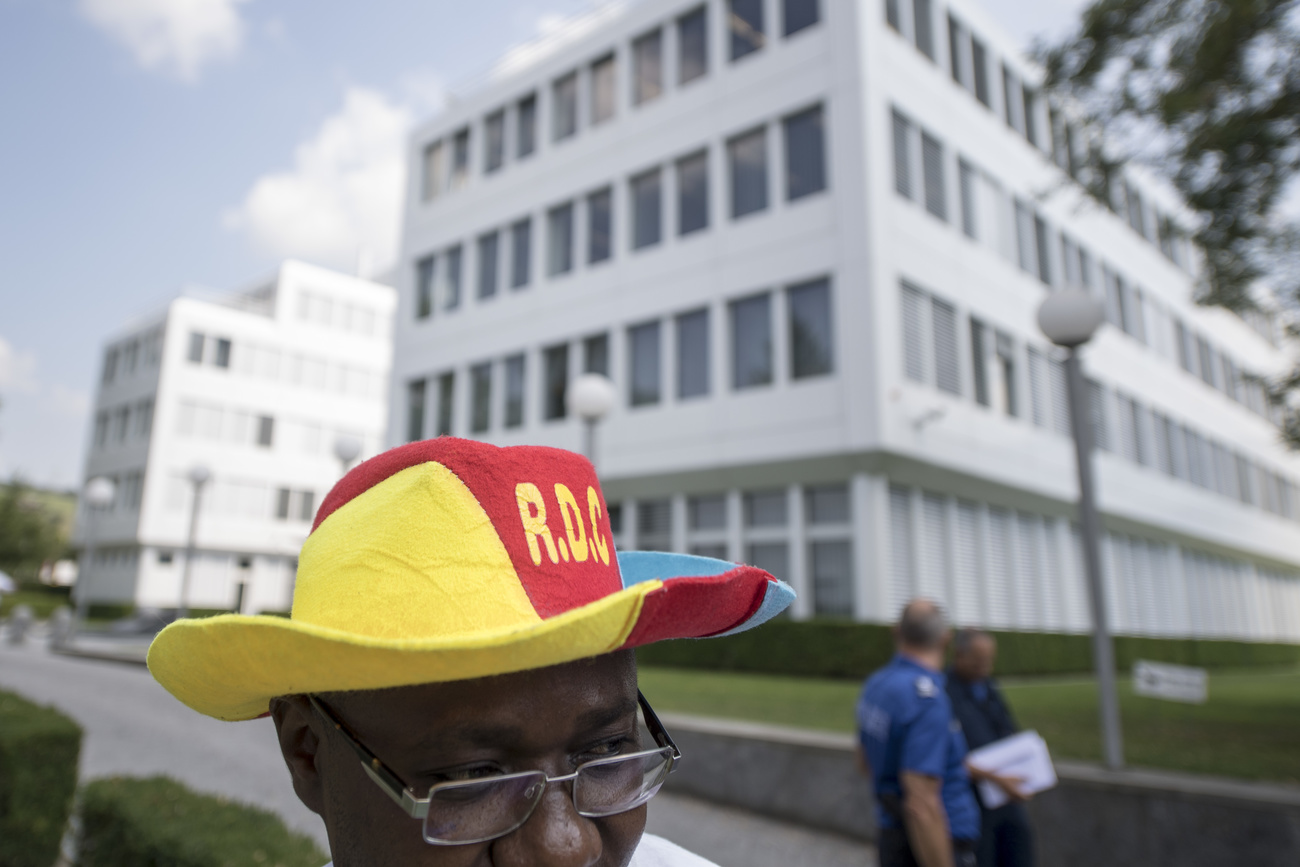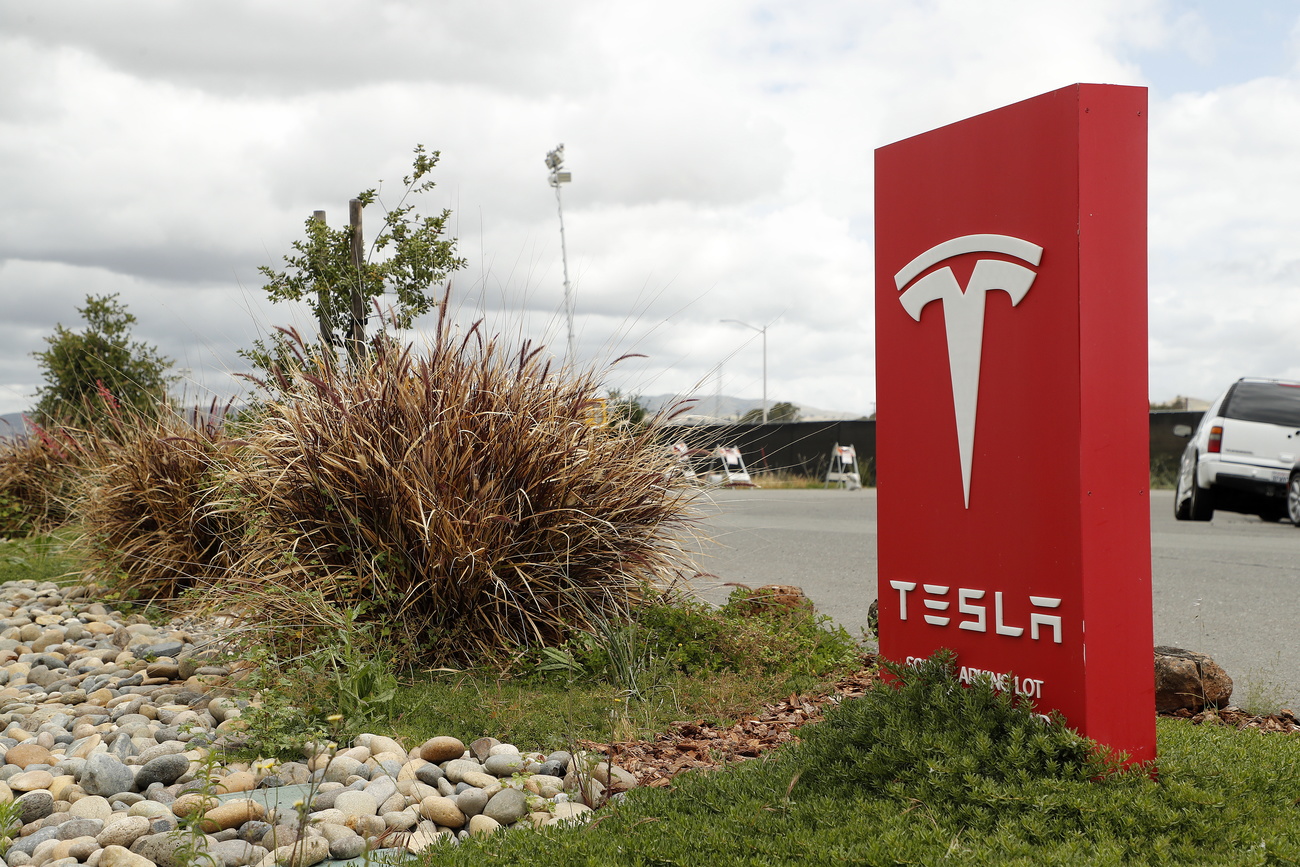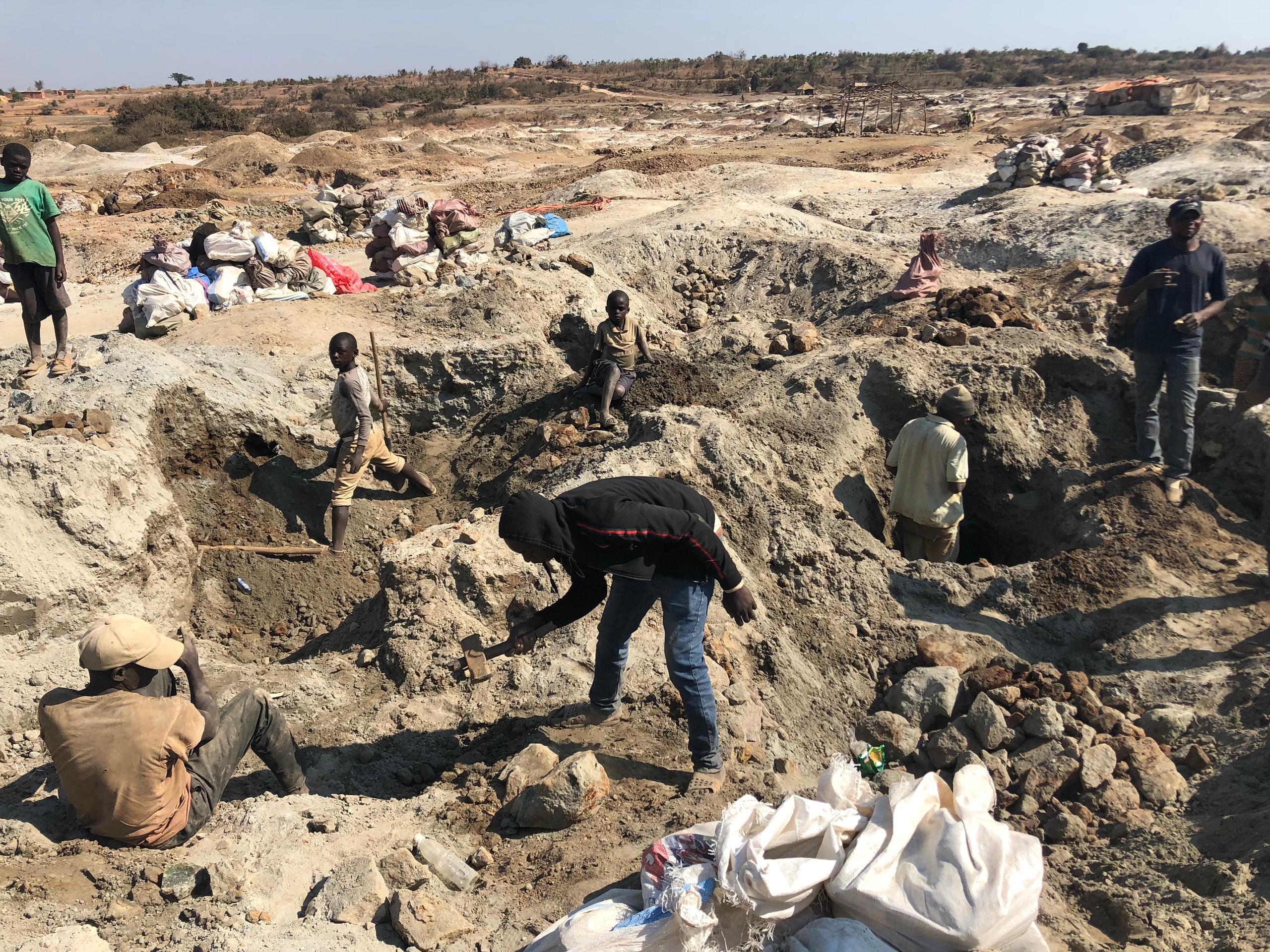Glencore: life after Ivan Glasenberg

In his closing days as Glencore boss last week, Ivan Glasenberg flew to Kazakhstan and Tajikistan for presidential meetings, oversaw the appointment of a new chair and found the time for one last deal, a buyout of the company’s partners in a huge Colombian coal mine.
Over almost two decades, the chief executive’s relentless work ethic, steely resolve and fierce competitive spirit have driven the company’s transformation from a privately owned commodity trader into a $58 billion (CHF53 billion) publicly listed natural resources giant.

“We built the fourth-largest mining company in the world in 20 years,” Glasenberg told the Financial Times last month.
Now, with the Glasenberg era over and the world turning its back on fossil fuels, his handpicked successor Gary Nagle and new chair Kalidas Madhavpeddi need to hit the ground running.
As a big producer of copper, cobalt and nickel, metals set for a demand boom during the energy transition, Glencore is well placed to profit from the decarbonisation of the global economy.
But critics say Glasenberg has left Glencore ill-equipped for the 21st century, with few senior women and a portfolio of coal mines on three continents — at a time when investors and policymakers are putting pressure on mining companies to tackle climate change.
Glasenberg also leaves with the continuing cloud of a US Department of Justice (DOJ) investigation into its businesses in Nigeria, the Democratic Republic of Congo and Venezuela, as well as probes in the UK and Switzerland.

More
Glencore completes changing of the guard
Drawing a line
Investors will be hoping Nagle, 46, and Madhavpeddi, 65, will be able to draw a line under the regulatory issues and boost Glencore’s stock price, which is down 40 per cent since listing in London in 2011.
“There are lots of funds now who will not own Glencore because of all this,” said one natural resources banker. “They are worried about it now but it’s almost too late, the world has moved on. They have a lot of challenges to reshape that group.”
Nagle will also want to improve Glencore’s safety record and possibly prune a long tail of marginal assets.
Unlike Glasenberg, who waived participation in bonus and incentive schemes, Nagle will be subject to conventional remuneration arrangements.
“This is an important turning point on Glencore’s transition to more institutional investor-friendly behaviour,” said Barclays analyst Amos Fletcher.
“Tenacious”
The son of Lithuanian Jewish immigrants to South Africa, Glasenberg grew up in a suburb of Johannesburg during the height of apartheid. A champion speed-walker, he was denied the opportunity to go to the Olympics because of the global sporting boycott of the country.
After an accountancy degree in South Africa and an MBA at the University of Southern California, he joined Glencore’s predecessor company, Marc Rich & Co, as a coal trader in 1984. He became head of the coal department in 1990, rising to take the top job at Glencore in 2002.
His biggest decision was to list Glencore on the London Stock Exchange in 2011, giving the company firepower to do deals. Two years later, Glencore completed a takeover of rival Xstrata, catapulting the company into the major league of mining.
“He was extremely hard-working, tenacious and loved his work, so much so he would have paid to come to the office,” said Telis Mistakidis, Glencore’s former head of copper and one of Glasenberg’s key lieutenants.
“The thing with Ivan is he’s the ultimate competitor and that applies across business and sport,” said Richard Horrocks-Taylor, global head of metals and mining at Standard Chartered.
As China’s demand for copper soared, Glasenberg took Glencore into the Democratic Republic of Congo, where it ended up in business with Dan Gertler.
Glencore’s relationship with the Israeli businessman — a contact Glasenberg handled personally — came under increased scrutiny from US regulators after the Treasury department-imposed sanctions on Gertler in 2017. Nagle will have to weigh up how to deal with the Israeli billionaire, who still receives royalties from the company.
“Until there is more certainty on the thermal coal strategy and some resolution to some of the outstanding regulatory investigations, we find it difficult to get more positive,” said Danielle Chigumira, an analyst at Bernstein Research.
Low profile
Since being named Glasenberg’s successor in December, Nagle — a fellow South African, with a degree in commerce and accounting — has kept a low profile and given no media interviews.
In a video published on Glencore’s website last week, Nagle said Glencore would continue producing coal “responsibly”, comments that suggest a demerger of the coal business is unlikely, although that could change if shareholders demand something different.
“We won’t just sell it off to another party who may not run the business as responsibly,” he added. Glencore is targeting a 50 per cent reduction in its total emissions by 2035, mainly by running down its coal mines, a strategy that won support from its investors and groups such as Climate Action 100+.
Another challenge for Nagle and Madhavpeddi will be maintaining a good relationship with the outgoing chief executive. Glasenberg and his former lieutenants, including Mistakidis, still control about 25 per cent of Glencore.
Madhavpeddi, who joined Glencore’s board in February 2020, has long experience of the mining industry, China and the DRC, where the company has invested heavily.
Between 2008 and 2018 he ran the international arm of China Molybdenum, overseeing the $2.65 billion purchase of the Tenke copper and cobalt project in the DRC.
His appointment in effect completes an overhaul of Glencore’s top management. Almost all of the senior executives who led the London-listed company to its 2011 flotation have left.
Possible future settlement
Analysts and investors think the changing of the guard could pave the way for a settlement with the DOJ over the next 12 to 18 months. “We know the typical length of investigation is three to five years, versus three elapsed so far,” said Fletcher.
Glasenberg said he had plenty to keep him busy in retirement, although Glencore would never be far from his thoughts.
One project he is particularly passionate about is the athletics school he has established in South Africa — one of many schools he has funded around the world.
Other plans include developing Italian sportswear company Q36.5 in which he is an investor, working on his fitness with a view to entering an iron man competition and establishing a farm in Lithuania where his father was born.
As for commodities, Glasenberg’s “involvement” will be strictly limited to his 9 per cent stake in Glencore, which he plans to retain.
“I will keep an eye on the company,” he said, “given the size of my investment”.
Copyright The Financial Times Limited 2021

More
Glencore CEO Glasenberg to step down next year

In compliance with the JTI standards
More: SWI swissinfo.ch certified by the Journalism Trust Initiative




You can find an overview of ongoing debates with our journalists here. Please join us!
If you want to start a conversation about a topic raised in this article or want to report factual errors, email us at english@swissinfo.ch.